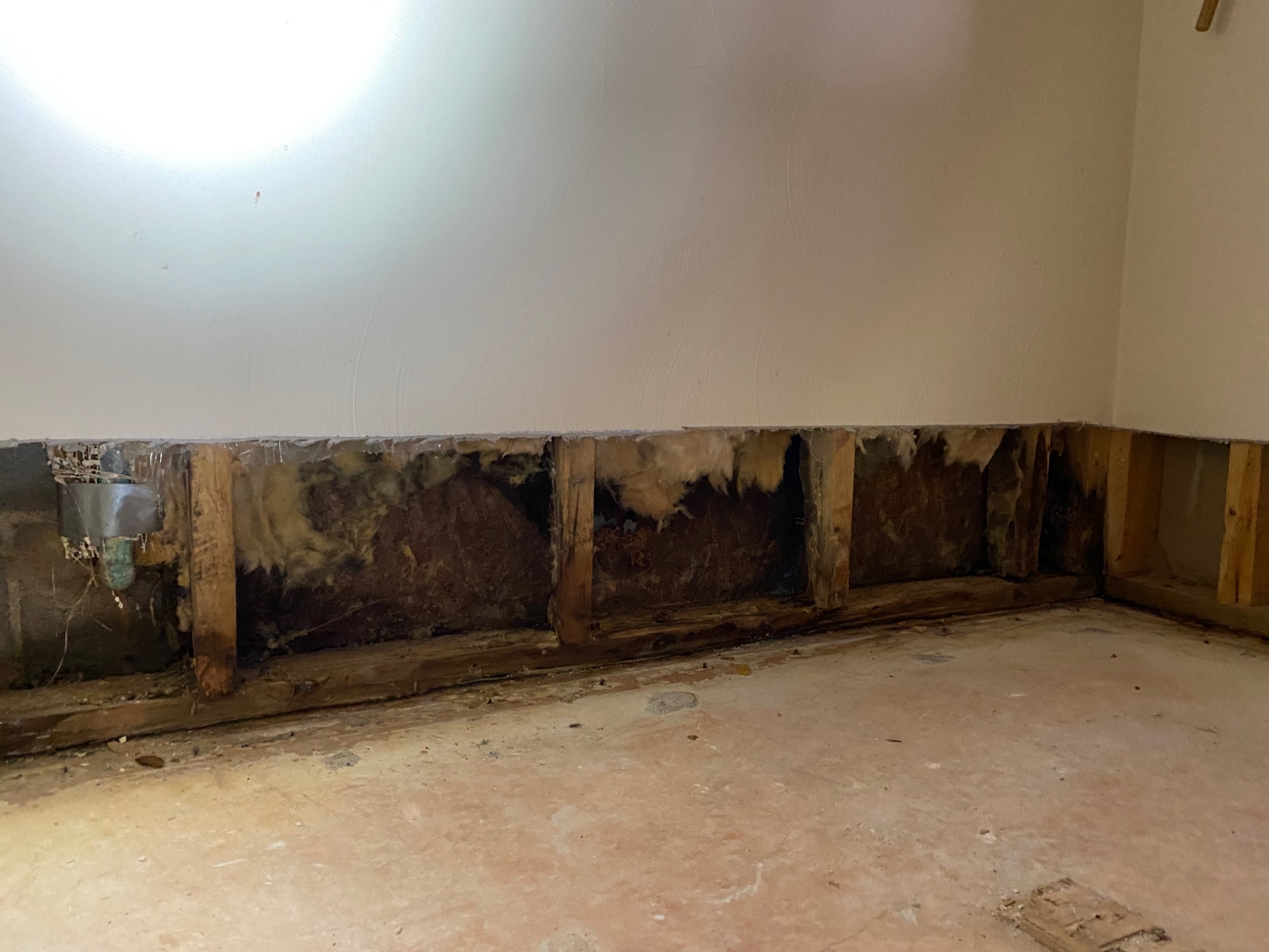
You’ve no doubt heard about the importance of foundation inspections, especially in Virginia, but you may be wondering what all the fuss is about. After all, isn’t the foundation just a slab of concrete under your house? Actually, it’s much more than that. Regular inspections could save you from facing severe structural damage in the long run. Now, wouldn’t you want to know more about how this process works and how it could potentially save your home?
Key Takeaways
- Foundation inspections in Virginia assess the state of your property’s foundation, checking for cracks, bulges, or leaning.
- Regular inspections in Virginia can detect early signs of foundation issues, preventing costly repairs and ensuring safety.
- Inspections in Virginia may cost more depending on the home’s size, age, location, and the severity of detected problems.
- Foundation inspectors in Virginia use tools like levels and laser meters to check the foundation level and assess for water damage.
- If foundation issues are detected in your Virginia home, prompt action, moisture assessments, and multiple repair quotes are recommended.
Understanding Foundation Inspections
Diving into the world of foundation inspections, it’s important to grasp what they involve and why they’re significant. You may wonder, “What’s the big deal?” Well, foundation inspections are essential to ensuring your property’s longevity. They help identify potential issues that could lead to costly repairs if not addressed promptly.
The first thing you need to know is that there are different foundation types. You’ve got your slab foundations, pier and beam foundations, crawl space foundations, and basement foundations. Each type has its unique features, benefits, and potential issues. Knowing your foundation type helps you understand what should be inspected and how.
Next, consider soil conditions. They’re a key factor in the inspection process, as they greatly impact the foundation’s stability. For instance, expansive soils swell when wet and shrink when dry, causing the foundation to move. This movement can lead to cracks and other damages.
On the other hand, sandy soils, although they drain well, can shift and settle, which could also affect the foundation’s integrity.
The Importance of Regular Checks
Regularly checking your foundation is like getting a regular health check-up. It’s vital, preventative, and can save you a heap of trouble down the line. Your home’s foundation stability is paramount to its overall structural integrity. When you keep tabs on it, you’re not just maintaining your home; you’re safeguarding your investment.
Think of foundation checks as an insurance policy. You wouldn’t skip on car insurance, would you? Just like with your vehicle, regular checks on your foundation keep small issues from turning into costly repairs. Cracks and shifts in your foundation can lead to significant damage. But catching these early can prevent more serious problems.
Don’t forget, it’s not just about saving money. It’s about safety. Issues with structural integrity can lead to dangerous situations. Regular foundation inspections guarantee that your home stays as safe as possible for you and your family.
In short, regular checks on your foundation are vital. They protect your investment, save you money, and, most importantly, keep you safe. So, don’t neglect them. After all, your home is worth it.
Typical Foundation Inspection Process
Often, a typical foundation inspection begins with a careful visual examination of both the interior and exterior of your home. This initial step is essential in identifying potential issues with different foundation types such as slab, crawl space or basement.
The inspector will then use specialized inspection tools like levels, measuring tapes, and laser meters to ascertain that your foundation is level and to identify any areas of concern. If the foundation is uneven or if there are cracks, it could indicate potential structural problems.
Next, the inspector will check for signs of water damage or moisture, as these can severely impact your foundation’s integrity. They’ll look for dampness, water stains, or mold, especially in basements and crawl spaces.
Following this, the foundation’s exterior will be examined. Here, the inspector will look for cracks in the walls, bulges, or leaning, which may suggest foundation movement or shifting.
Potential Costs of Inspections
Understanding the potential costs of foundation inspections is key to budgeting for this essential home maintenance task. It’s crucial to recognize that cost variations exist, depending on several inspection factors.
Firstly, the size of your home plays a significant role. Larger homes require more time and effort to inspect, which may increase the cost.
Similarly, the age of your house can impact the expense. Older homes might require more in-depth inspections due to potential historic damage or outdated construction methods.
The location of your home is another factor. If your home is in an area known for certain foundation issues, a more detailed inspection might be necessary, adding to the cost.
The severity of potential problems also matters. If an inspector anticipates significant issues, they might recommend a specialist, which could raise your inspection bill.
Lastly, the inspector’s experience and reputation can influence the price. More experienced inspectors may charge more, but they’re also more likely to spot issues that less seasoned inspectors could miss.
Addressing Detected Foundation Issues
Once your foundation inspection reveals any issues, it’s crucial to address them promptly. This might seem intimidating, but don’t worry. Whether it’s a crack analysis or a moisture assessment, there’s a clear path forward.
- Evaluate the Issue: First, understand the severity of the problem. Not all cracks indicate a severe foundation issue, and a professional crack analysis can help determine if it’s cosmetic or structural.
- Moisture Assessment: If there’s a moisture problem, it’s important to assess the source. Is it a leak or condensation? Solving this issue can prevent future foundation damage.
- Price Quotes: Get several quotes for the repair. Don’t rush into the first offer you receive. Take your time and compare prices and services.
- Action Plan: Finally, create a plan of action with your chosen professional. They’ll guide you through the process, ensuring the foundation issue is addressed efficiently.
Remember to act quickly. Delaying repairs can lead to more serious problems down the line.
Yes, it might be challenging, but you’re not alone. Professionals are there to help, and it’s their job to make the process as smooth as possible for you.
Choosing the Right Inspection Company
So, how do you find the right inspection company? It’s about more than just picking a name from the phone book or doing a quick Google search. Start with credentials verification. Make sure the company you’re considering is fully qualified and certified. They should have the necessary experience and knowledge to conduct thorough foundation inspections.
Don’t be shy to ask for proof of their credentials. A reputable inspection company won’t hesitate to share this information. It’s part of demonstrating their commitment to quality and professionalism.
Next, consider customer reviews. What’re past clients saying about their experiences? Are they satisfied with the service they received? Remember, reviews and testimonials are powerful indicators of a company’s performance and reliability.
Look for an inspection company that not only has a positive track record but also communicates effectively. They should be forthcoming about their procedures, findings, and recommendations. The best inspectors don’t just identify problems; they help you understand them and guide you through potential solutions.
Choosing the right inspection company isn’t just about credentials and reviews. It’s about finding a partner you can trust to protect your property’s foundation. So, take your time, do your research, and make an informed decision.
Frequently Asked Questions
What Qualifications Should a Foundation Inspector in Virginia Have?
In your city, a good foundation inspector should meet certain qualifications.
They must have a thorough understanding of local building codes and should be proficient in modern inspection techniques.
They’re also required to have specific certification requirements, which vary based on state and local regulations.
Make sure they’re certified and have a solid reputation for providing quality inspections.
Does Homeowners Insurance Typically Cover Foundation Inspection Costs in Virginia?
Whether your homeowners insurance covers foundation inspection costs in your city depends on your specific policy details.
Typically, insurance doesn’t cover these costs unless damage is caused by a covered peril.
It’s best to review your policy or consult with your insurance agent to understand what’s covered.
How Long Does a Foundation Inspection Usually Take in Virginia?
How long a foundation inspection takes can vary. Typically, you’re looking at a few hours.
It largely depends on the inspector’s experience and the complexity of your property. If they’re thorough, they’ll check both inside and outside your home, including the basement and crawl spaces.
Don’t rush it, though. You want them to take the time necessary to guarantee your home is safe and secure.
Can I Perform My Own Foundation Inspection in Virginia?
Sure, you can perform your own foundation inspection, but it’s not advisable.
The benefits of a professional foundation inspection include thoroughness and expertise that DIY inspections can’t match.
There’s a risk you’ll miss serious issues that could cost you down the line.
What Are Some Common Signs of Foundation Problems in Homes in Virginia?
In Virginia, you’ll often spot foundation problems in homes by noticing cracked walls and uneven floors.
These are common signs that something’s not right. Cracked walls may appear on the interior or exterior, showing stress from shifting.
Uneven floors can mean the house is settling more on one side.
Always remember, it’s important to address these issues promptly to prevent further damage.
Conclusion
So, you see, regular foundation inspections in Virginia are a necessity, not a luxury. They help you spot issues early, saving you from hefty repair costs. The process is thorough and professional, ensuring your property’s safety and longevity. Remember, addressing problems promptly is key. And choosing the right company can make all the difference. So don’t delay – protect your home and your investment today.

Seal-tite Basement Waterproofing Co. is a full service basement environment contractor. We carry an A+ Better Business Bureau rating. We repaired over 40,000 homes and structures in Virginia, West Virginia, Tennessee, and North Carolina. We are fully insured and licensed. We have worked in all types of locations, including residential and commercial locations, government agencies, colleges, hospitals, churches, and condo associations.
Seal-tite® offers a lifetime transferable warranty. We carry a Class A Contractor’s License and we are fully insured. Our satisfied customers range from government agencies to businesses, hospitals, colleges, churches, and thousands of homeowners. Your home is probably the single largest investment you will make in your lifetime. Don’t wait, call Seal-tite® to help make your home dry, safe and livable.

